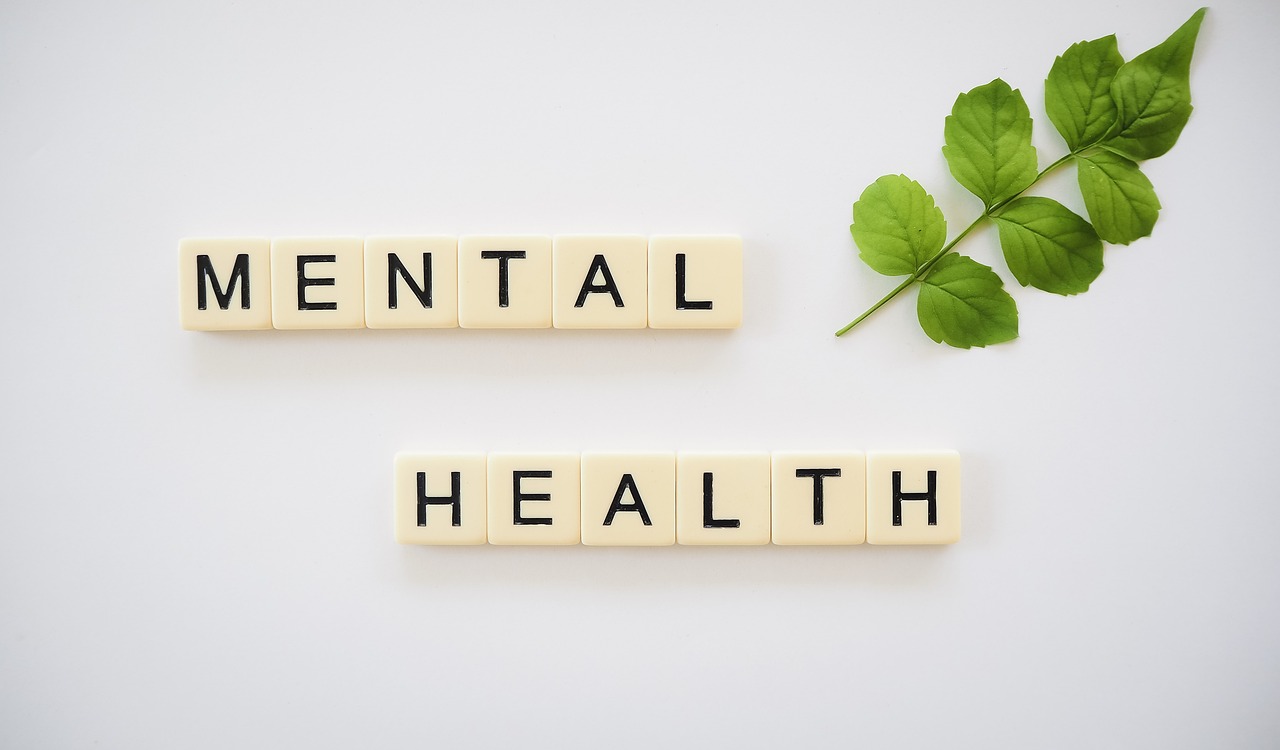
In a relationship, it is vital to acknowledge and address the challenges that may arise when one partner is dealing with mental health issues. Navigating these obstacles requires open communication, empathy, and a willingness to adapt and support one another. By fostering a safe and understanding environment, both partners can find ways to navigate the complexities of mental health together, ultimately strengthening their bond and ensuring a healthier and happier relationship.

Understanding Mental Health Challenges
Defining mental health
Mental health refers to a person’s emotional, psychological, and social well-being. It encompasses how we think, feel, and behave, and affects every aspect of our lives. Just like physical health, mental health is vital for overall well-being and quality of life.
Common mental health challenges
Many individuals experience mental health challenges at some point in their lives. Common mental health conditions include anxiety disorders, depression, bipolar disorder, post-traumatic stress disorder (PTSD), and eating disorders. Each condition presents unique symptoms and impacts individuals differently.
Impact on relationships
When one partner struggles with mental health challenges, it can have a significant impact on the relationship. Communication may become strained, intimacy may suffer, and both partners may face increased stress. It is essential to understand the impact that mental health challenges can have on relationships in order to better navigate and support each other.
Communication and Supportive Environment
Open and honest communication
Open and honest communication is crucial when one partner is experiencing mental health challenges. It is important to create an environment where both partners feel comfortable expressing their thoughts and emotions. Encourage open discussions about feelings, concerns, and fears, and strive to be understanding and non-judgmental.
Active listening
Active listening is a skill that can greatly benefit relationships affected by mental health challenges. When your partner is sharing their thoughts or struggles, give them your undivided attention and actively engage in the conversation. Avoid interrupting or offering unsolicited solutions. Instead, focus on validating their feelings and providing emotional support.
Creating a safe and supportive environment
Creating a safe and supportive environment is essential for the well-being of both partners. This includes understanding and respecting each other’s boundaries, avoiding judgment or blame, and actively working together to find healthy and effective solutions. Remember, your partner’s mental health challenges are not their fault, and it’s important to foster an atmosphere of compassion and acceptance.
Education and Empathy
Educating yourself about mental health
Educating yourself about mental health is pivotal in understanding your partner’s challenges and providing appropriate support. Learn about different mental health conditions, their symptoms, and available treatments. This knowledge will not only help you offer better support, but also dispel any misconceptions or stigmas surrounding mental health.
Developing empathy and understanding
Empathy and understanding are key aspects of supporting a partner with mental health challenges. Put yourself in their shoes and try to imagine how they might be feeling. Validate their emotions and let them know that you care and are there to support them. Show empathy by acknowledging their struggles and offering a listening ear without judgment.
Avoiding stigmatization and judgment
When one partner is dealing with mental health challenges, it is important to avoid stigmatization and judgment. Mental health conditions are not weaknesses or character flaws; they are legitimate health conditions that require understanding and support. Refrain from assuming or labeling your partner based on their challenges, and instead focus on fostering a supportive and non-judgmental atmosphere.
Seeking Professional Help
Encouraging therapy or counseling
Encouraging your partner to seek professional help is an important step in navigating mental health challenges together. Therapy or counseling can provide them with the tools and support they need to manage their condition effectively. Offer your assistance in finding a qualified mental health professional and emphasize that seeking help is a sign of strength, not weakness.
Finding the right mental health professional
Finding the right mental health professional is crucial for effective treatment. Help your partner research and identify professionals who specialize in their specific condition. Consider factors such as their credentials, experience, and approach to treatment. Encourage your partner to schedule initial consultations to ensure a good fit and rapport.
Attending couple’s therapy
Couple’s therapy can be immensely beneficial when one partner is struggling with mental health challenges. A trained therapist can help both partners understand each other’s perspectives, improve communication, and develop coping strategies. Couple’s therapy provides a safe space to address relationship issues and work towards building a stronger and more resilient bond.

Self-Care for Both Partners
Importance of self-care
Self-care is crucial for both partners when facing mental health challenges in a relationship. It involves actively taking care of your physical, emotional, and mental well-being. Prioritizing self-care allows you to recharge, reduce stress, and maintain a healthier mindset, which in turn positively impacts the relationship.
Identifying and managing stress
Identifying and managing stress is essential for maintaining overall well-being. Help each other recognize stress triggers and develop healthy coping mechanisms. Encourage relaxation techniques such as deep breathing, meditation, or engaging in activities that bring joy and relaxation. By effectively managing stress, both partners can better navigate the challenges that arise.
Supporting each other’s self-care
Supporting each other’s self-care is crucial in maintaining a healthy relationship when mental health challenges are present. Encourage and actively participate in activities that promote well-being, such as exercises, hobbies, or self-reflection. By supporting each other’s self-care, you both strengthen your bond and create a foundation of mutual care and support.
Building a Strong Support System
Identifying supportive friends and family
Building a strong support system is vital for both partners when one is struggling with mental health challenges. Identify family members, friends, or other loved ones who can offer understanding, support, and a listening ear. Share your experiences and educate them about mental health to foster a supportive network that can help navigate the ups and downs.
Educating loved ones about mental health
Educating loved ones about mental health is instrumental in reducing misunderstandings and stigma. Provide information to your support network about the challenges you and your partner may face. Share resources, articles, or personal stories to help them gain a better understanding of mental health and how they can provide meaningful support.
Utilizing support groups or online communities
Support groups or online communities can be invaluable resources for couples navigating mental health challenges. Connecting with others who have similar experiences can provide a sense of belonging and validation. These communities offer a safe space to share struggles, seek advice, and learn coping strategies from people who may understand your situation firsthand.

Setting Realistic Expectations
Understanding limitations and challenges
Setting realistic expectations is important when one partner has mental health challenges. Understand that there may be limitations or challenges that affect everyday life, such as energy levels, motivation, or emotional availability. Recognize that progress may not always be linear and that recovery takes time. Embrace flexibility and adaptability to navigate the unique circumstances that arise.
Setting boundaries
Setting healthy boundaries is essential in maintaining a balanced and healthy relationship. Communicate openly about your needs and limitations, and encourage your partner to do the same. Respect each other’s boundaries and negotiate compromise when necessary. Setting clear boundaries helps create stability and protects both partners’ well-being.
Avoiding blame and guilt
It is important to avoid blame and guilt when navigating mental health challenges in a relationship. Remember that mental health conditions are not the result of personal shortcomings. Avoid attributing blame or guilt to your partner or yourself. Instead, focus on fostering understanding, empathy, and finding solutions together.
Developing Coping Strategies
Exploring healthy coping mechanisms
Developing healthy coping mechanisms is crucial for both partners. Encourage each other to explore activities or strategies that promote well-being and manage stress in a healthy way. This may involve engaging in hobbies, practicing mindfulness or relaxation techniques, or seeking outlets for self-expression. Experiment with different strategies and find those that work best for each of you.
Developing a crisis plan
Developing a crisis plan is essential in the event of a mental health emergency. Collaborate with your partner and mental health professionals to create a plan that outlines steps to take if crisis situations arise. Ensure that you both have access to important contact information, crisis hotlines, and emergency resources. Having a plan in place can provide a sense of security and preparedness.
Regular self-assessment and adjustment
Regular self-assessment and adjustment is necessary throughout the journey of navigating mental health challenges in a relationship. Check in with yourselves and each other periodically to reflect on progress, challenges, and needs. Be adaptable and open to adjusting coping strategies or seeking additional support as required. Regular self-assessment helps ensure that you are continuously addressing your evolving needs.

Taking Care of the Relationship
Preserving emotional intimacy
Preserving emotional intimacy is essential in maintaining a strong relationship when one partner is facing mental health challenges. Make time for open and honest conversations that foster connection and understanding. Focus on nurturing emotional intimacy by expressing love, appreciation, and support. Remember that small gestures and acts of kindness can go a long way in strengthening your bond.
Investing in quality time together
Investing in quality time together is vital for maintaining a healthy relationship. Plan activities that both partners enjoy and that promote connection and joy. Whether it’s going for a walk, having a movie night, or simply cooking a meal together, prioritize shared moments that allow you to create positive memories and strengthen your relationship.
Nurturing a positive relationship
Nurturing a positive relationship involves actively working towards maintaining a healthy and supportive dynamic. Practice gratitude and appreciation for each other’s efforts and progress. Foster trust and respect in your interactions. By nurturing a positive relationship, you cultivate a strong foundation that can withstand the challenges that mental health may present.
Celebrating Progress and Resilience
Recognizing small victories
Recognizing and celebrating small victories is important in maintaining motivation and resilience. Acknowledge and appreciate each other’s progress, no matter how small. Celebrate achievements together, whether they are getting through a particularly tough day or taking steps towards self-improvement. By focusing on the positive, you can foster a sense of optimism and resilience as a couple.
Expressing gratitude and appreciation
Expressing gratitude and appreciation strengthens the bond between partners facing mental health challenges. Take the time to express your gratitude for each other’s support, understanding, and efforts to manage mental health. Highlight specific instances where your partner’s actions made a positive impact on your well-being. By expressing gratitude, you reinforce the importance of your relationship and create a culture of positivity.
Cultivating resilience as a couple
Cultivating resilience as a couple is key to navigating the challenges of mental health. Embrace the mindset that challenges can be overcome and view setbacks as opportunities for growth. Together, cultivate strategies that help you bounce back from difficult periods. Foster an environment of support, understanding, and reassurance that bolsters a resilient and enduring partnership.
Navigating challenges when one partner struggles with mental health requires understanding, communication, and support. By developing a comprehensive toolkit that includes education, empathy, professional help, self-care, a strong support system, realistic expectations, coping strategies, relationship care, and celebration of progress, couples can face these challenges with resilience and foster a strong, compassionate, and enduring relationship. Remember, you are not alone in this journey, and with dedication and shared efforts, you can navigate the complexities of mental health together.






